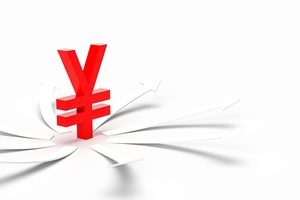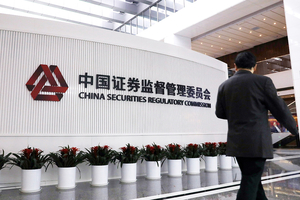In Depth: Why China’s Tightening Its IPO Regulation
Listen to the full version

China is tightening its grip on the country’s stock market with a set of new guidelines, hoping to arrest the protracted slump in share prices, improve the quality of listed companies, and restore investor confidence. Market observers, however, warn that the measures could jeopardize the landmark overhaul of the IPO system introduced five years ago and shut out innovative small companies in emerging industries.

Download our app to receive breaking news alerts and read the news on the go.
Get our weekly free Must-Read newsletter.
- DIGEST HUB
- China introduced new stock market guidelines to address regulatory shortcomings and improve market quality, but they risk undermining the IPO system overhaul from five years ago.
- The guidelines, focusing on stricter oversight and regulation, tighten IPO criteria and enhance pre-IPO review responsibilities, potentially deterring small innovative companies.
- Analysts predict these measures will decrease IPO activity and overall financing, with a forecasted 56% to 71% drop in IPO proceeds this year.
China is intensifying its regulation of the stock market through a new set of guidelines aimed at addressing the prolonged slump in share prices, improving the quality of listed companies, and restoring investor confidence. However, market observers caution that these measures could undermine the IPO system overhaul introduced five years ago and exclude small, innovative firms in emerging industries [para. 1].
Released on April 12 by the State Council, the guidelines focus on improving regulation, covering aspects like listing standards, delisting rules, intermediary oversight, and supervision of high-frequency trading [para. 2]. Wu Qing, chairman of the China Securities Regulatory Commission (CSRC), emphasized that the guidelines aim to address weaknesses exposed by past market turbulence and to resolve long-standing issues, promoting the development of a regulated, transparent, and resilient market [para. 3][para. 4]. Following the implementation, the stock exchanges revised their business regulations to align with State Council requirements [para. 5]. Known as the National Nine Articles, these guidelines emphasize strict supervision and management, a shift from the previous focus on stable development [para. 6].
A significant change in the guidelines is the tightening of IPO criteria to improve the quality of listed companies. Key financial indicators for IPO candidates have been raised, placing more emphasis on a company's ability to generate stable returns and withstand risks. The CSRC has issued new rules and increased the random inspection rate of IPO candidates from 5% to 20% to ensure compliance [para. 8][para. 9][para. 13]. Analysts believe that these tightened regulations roll back much of the reform measures introduced in 2018 aimed at lowering barriers for up-and-coming companies to list on domestic stock markets [para. 14][para. 15].
Previously, the 2019 reform had shifted the main responsibility for IPO reviews from the CSRC to the stock exchanges, introducing a registration-based system that allowed the market more autonomy. This system was designed to be carried out with minimal regulatory intervention, with the legal groundwork laid by the updated Securities Law in 2020 [para. 15][para. 17]. However, issues quickly emerged regarding the quality of disclosures by listing candidates and their intermediaries, leading to an intervention by the CSRC [para. 20]. Analysts argue that China’s stock market might not be mature enough for such a system, necessitating a return to more stringent reviews [para. 21].
An increased threshold for IPO applications will make it harder for companies, particularly those in the high-growth, high-risk category, to list. On the STAR Market, companies specializing in science and technological innovation now face higher entry requirements, including the amount of funding for R&D and patents obtained [para. 24][para. 25]. As stricter regulations take hold, analysts forecast a sharp decline in IPO financing for the year, predicting that only around 100 companies might be able to go public, raising 102.5 billion yuan ($14.1 billion), which represents significant year-on-year declines [para. 32].
The tightening of IPO regulations could discourage companies from even applying, as the process and standards become tougher [para. 28]. A perceived over-regulation of the IPO process may further dissuade firms, reflecting a need for a balance between protecting investors and allowing market-driven principles to flourish [para. 34]. Consequently, the market anticipates continued difficulties in IPO financing, exacerbating the challenges faced by companies attempting to go public under the new guidelines [para. 32].
Despite the intention to address shortcomings in the system and improve market quality, these measures appear likely to restrict IPO opportunities and limit market growth, prompting a need for careful consideration of both regulatory rigor and market dynamics [para. 34].
- Dongxing Securities Co. Ltd.
- Dongxing Securities Co. Ltd. is a financial firm focusing on the nonbanking financial sector. Analyst Liu Jiawei from Dongxing Securities noted that the comprehensiveness and detail of the new guidelines for China's stock market are rare in recent years. Liu believes that efficient implementation of these policies could lead to a significant qualitative change in the market.
- Soochow Securities Co. Ltd.
- Soochow Securities Co. Ltd. is mentioned in the article as having published a report on April 14, which argues that moderately raising the threshold for IPOs on China's main boards and ChiNext is a necessary step to optimize the registration-based IPO regime. The analysts believe that despite the registration-based reform, the market still cannot rationally price the value of listed companies.
- Guotai Junan Securities Co. Ltd.
- Guotai Junan Securities Co. Ltd.'s analysts evaluated companies with pending IPO applications as of April 14 and found that 28 out of 155 main board hopefuls could be disqualified under new guidelines. For the STAR Market, at least 10% of waiting companies could be impacted.
- April 12, 2024:
- The State Council of China released new guidelines aimed at tightening regulations on the stock market.
- April 14, 2024:
- Soochow Securities Co. Ltd. published a report discussing the necessity of raising the threshold for the IPO regime.
- As of April 14, 2024:
- A report by Guotai Junan Securities Co. Ltd. found that 28 out of 155 main board listing hopefuls could be disqualified under the new guidelines.
- April 15, 2024:
- Liu Jiawei published a report highlighting the comprehensiveness of the new policies and their potential impact on the market.
- April 17, 2024:
- A Beijing-based research institute published a report predicting a sharp decrease in the number of IPOs and IPO financing for the current year.
- April 30, 2024:
- The CSRC published an updated checklist increasing the random inspection rate of IPO candidates to 20%.
- PODCAST
- MOST POPULAR







 Sign in with Google
Sign in with Google
 Sign in with Facebook
Sign in with Facebook
 Sign in with 财新
Sign in with 财新